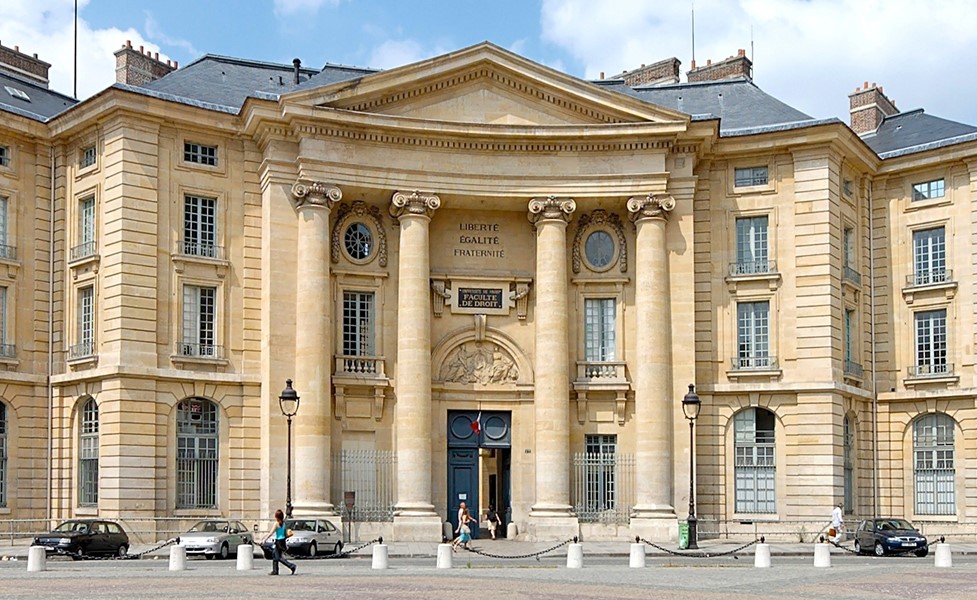
Universite Paris-Sorbonne
The Université Paris-Sorbonne, also known as Sorbonne University, was a prestigious French university that existed until 2018. It was renowned for its humanities and social sciences programs and has a centuries-old history. Here are some key details about the university, The Université Paris-Sorbonne traced its roots back to the University of Paris, which was founded in the 12th century and became one of the first universities in Europe. It was originally housed at the historic Sorbonne building in the Latin Quarter of Paris and was named after Robert de Sorbon, the founder of the College of Sorbonne. Over time, the university expanded and went through various restructurings, Merger, and Formation of Sorbonne University: In 2018, the Université Paris-Sorbonne merged with three other universities, the University of Pierre and Marie Curie, the University of Paris Descartes and the Institute of Art, Archaeology, and Cultural Heritage to form Sorbonne University, This merger aimed to create a comprehensive institution with a broader range of academic disciplines and research capabilities with a strong presence in art and cultural studies. It offered programs in art history, archaeology, musicology, and theater studies. The university’s location in Paris, a global cultural hub, gave students unique opportunities to explore and engage with the city’s vibrant arts scene.
The Université Paris-Sorbonne organized a wide range of cultural events, conferences, and symposiums throughout the academic year. These events brought together scholars, researchers, artists, and students to engage in intellectual discussions, present their work, and explore contemporary issues in the humanities and social sciences. The university’s cultural events enriched the academic experience and promoted dialogue among the academic community, Often host international festivals that celebrate different cultures and art forms. These festivals highlighted music, dance, theater, film, literature, and visual arts from around the world. They featured performances, exhibitions, screenings, and discussions, providing a platform for intercultural dialogue and appreciation.
The majority of renowned scholars, researchers, and experts from various disciplines are visiting professors or guest lecturers. These visiting scholars often delivered lecture series on specialized topics, offering unique insights and perspectives. Students and faculty members had the opportunity to engage with leading figures in their respective fields.
The university organized events that focused on cultural heritage and preservation. These events included guided tours to historical sites, museums, and archives, as well as lectures and workshops on topics related to heritage conservation, restoration, and interpretation. They aimed to raise awareness about cultural heritage and its importance in contemporary society.
The university collaborated with cultural institutions in Paris, such as museums, theaters, and art galleries, to organize joint events and exhibitions. These collaborations enriched the cultural offerings and provided students and faculty with access to a wide range of artistic and intellectual resources.
Research Centers and Institutes
The university hosted numerous research centers and institutes dedicated to specific fields of study. These research entities fostered interdisciplinary collaboration and advanced research in literature, linguistics, history, philosophy, art, archaeology, and social sciences. They facilitated groundbreaking research projects and promoted academic excellence.
International Reputation
The Université Paris-Sorbonne has an international reputation for its academic excellence and research contributions. It attracted students and scholars from around the world, fostering a diverse and multicultural learning environment. The university’s faculty members were respected experts in their respective fields and had extensive networks and collaborations within the global academic community.
Sorbonne Library
The university’s library, known as the Bibliothèque de la Sorbonne, was a major resource for students and researchers. It housed an extensive collection of books, periodicals, manuscripts, and digital resources in various disciplines. The library provided access to scholarly databases, research tools, and study spaces, supporting the academic needs of the university community.
Research Collaboration and Projects
The university encouraged collaborative research projects among its faculty members and researchers. It facilitated interdisciplinary collaborations and research networks, both within the university and with external partners. These research collaborations contributed to the advancement of knowledge and the production of high-quality research outputs.
Academic Journals and Publications
The university published several academic journals and publications, which showcased research findings and scholarly articles in various disciplines. These publications served as platforms for disseminating research and fostering academic dialogue. Faculty members and researchers at the university often contributed to these journals, further enhancing the university’s academic reputation.
Alumni and Networking Events
The university organized events that brought together alumni, current students, and professionals from various industries. These events facilitated networking opportunities, career development workshops, and panel discussions featuring successful alumni. They aimed to strengthen the university’s community and provide support to students and graduates in their professional journeys, The university organized interdisciplinary conferences that explored topics at the intersection of multiple disciplines. These conferences encouraged collaboration and dialogue between scholars from different fields, fostering innovative approaches to research and knowledge production. They facilitated interdisciplinary thinking and problem-solving. The university organized events to showcase the creative work of its students. These events included exhibitions of artwork, performances of plays or musical compositions, film screenings, and literary readings by student writers. They provided a platform for students to display their talents and gain recognition within the university community.
Cultural Heritage and Archives
The university preserved and showcased an extensive collection of cultural heritage and archives. It housed libraries, museums, and archives that contained rare books, manuscripts, artworks, and historical documents. These resources were invaluable for research and academic study, offering insights into various aspects of cultural and intellectual history, The cultural events and conferences organized by the Université Paris-Sorbonne were diverse, covering a wide range of artistic, intellectual, and societal themes. They aimed to foster creativity, critical thinking, and intercultural understanding among students, faculty, and the broader community. These events played a vital role in enriching the academic experience and promoting cultural engagement within and beyond the university’s walls.
The university was particularly well-regarded for its language and literature programs. It offered courses in various languages, including French, English, Spanish, Italian, German, and Arabic. The French language and literature programs were particularly renowned for their focus on literary analysis, critical thinking, and understanding of French literary heritage.
Faculties and Departments
The Université Paris-Sorbonne consisted of various faculties and departments that offered specialized academic programs. These included the Faculty of Arts and Humanities, Faculty of Languages and Literatures, Faculty of History, Faculty of Philosophy, Faculty of Sociology, and the Institute of Communication and Media Studies, among others. Each faculty and department had its own faculty members, research areas, and academic resources.
Study Abroad Programs
The university offered study abroad programs and welcomed international exchange students. Its international office facilitated student mobility and provided support services for international students, including assistance with visas, housing, and integration into campus life. Study abroad programs allowed students to immerse themselves in the French language and culture while studying at a prestigious institution.



